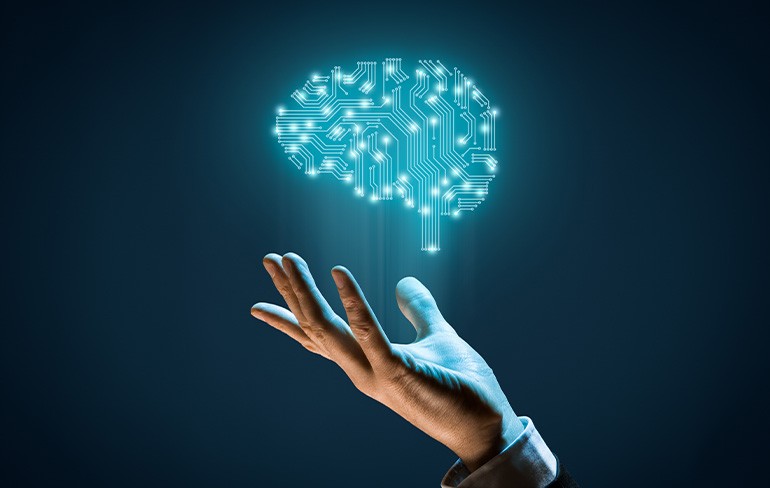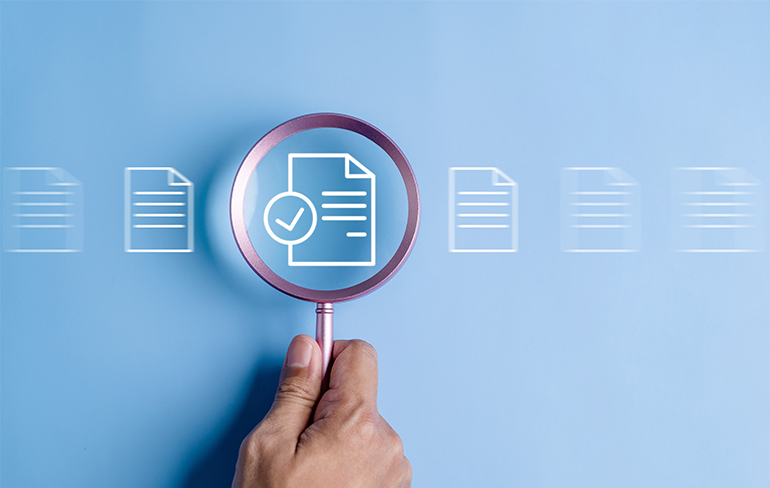Artificial Intelligence (AI) is shaping the way many businesses run today. This technology has the ability to mimic human intelligence and behavior by learning from experience, understanding complex concepts, recognizing patterns, and making decisions. Companies in various industries use AI to improve efficiency, provide personalized experiences, and automate tasks. Here are just a few examples of how some companies are using AI:
Although there are many benefits to using AI in your business, you must also be aware of the potential threats of incorporating AI into your business practices.

Google uses AI to power its search engine and improve its voice recognition capabilities. It also uses AI to personalize search results and for image recognition tasks.

Amazon uses AI to enhance its product recommendations and to manage its logistics network. AI also powers their Alexa-powered devices for voice recognition and natural language processing.

Netflix uses AI to analyze user viewing history and to personalize movie/TV show recommendations.

IBM's Watson AI system is used in healthcare, finance, and retail industries. For example, Watson can analyze medical data to assist with diagnosis and treatment decisions.

Tesla uses AI in its self-driving technology – it can detect objects, read road signs, and make real-time decisions.

Facebook uses AI for image and speech recognition tasks, along with news feed personalization.
Potential Issues with AI
If you use AI for screening job applicants or other HR functions, beware of the following:
Screening out: AI systems could be used to screen out job applicants or employees with disabilities, even if they can perform the job's essential functions with reasonable accommodation. For example, an AI system that is used to assess job applicants' resumes could be biased against applicants with certain disabilities, such as dyslexia or autism.
Unfair treatment: AI systems could be used to mistreat people with disabilities in the workplace. For example, an AI system that is used to assign tasks could assign more difficult tasks to employees with disabilities or give them fewer opportunities for advancement.
Lack of access: AI systems could be used to deny people with disabilities access to certain workplace resources, such as training programs or communication tools. For example, an AI system that is used to provide training could be inaccessible to people with specific disabilities, such as visual impairments or hearing impairments.
AI and Employee Benefits
AI systems typically operate based on patterns and statistical analysis of data. While they can make predictions or recommendations based on these patterns, they may lack a deep understanding of the underlying context. This can be problematic when providing benefit advice that requires a nuanced understanding of individual circumstances or cultural sensitivities.
Don’t forget that AI algorithms are trained on data, and if the data used to train them contains biases, the algorithms can perpetuate and amplify those biases. This can result in discriminatory outcomes, such as providing biased benefit advice that disproportionately favors certain groups or discriminates against others. Care must be taken to ensure that the training data used for AI systems is diverse, representative, and free from biases.
Accountability and Transparency: AI systems often operate as black boxes, meaning their decision-making processes are not easily interpretable or explainable. This lack of transparency can make it challenging to hold AI systems accountable for their advice or decisions. When providing benefit advice, it's crucial to have mechanisms in place to ensure transparency and understand how the AI system arrived at its recommendations.
Data Privacy and Security: Benefit advice often requires access to personal and sensitive data. AI systems must handle this data carefully to ensure privacy and security. There is a risk of data breaches, unauthorized access, or misuse of personal information, which can have severe consequences for individuals.
While AI can provide recommendations, it is important to have human oversight and intervention in the decision-making process. Human experts can provide a deeper level of understanding, judgment, and empathy that AI systems may lack. Essentially, humans can consider the recommendations provided by AI but should be responsible for making final decisions regarding benefit advice.
If you have any questions about AI and your business, please don’t hesitate to contact us.





